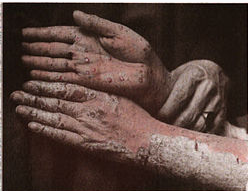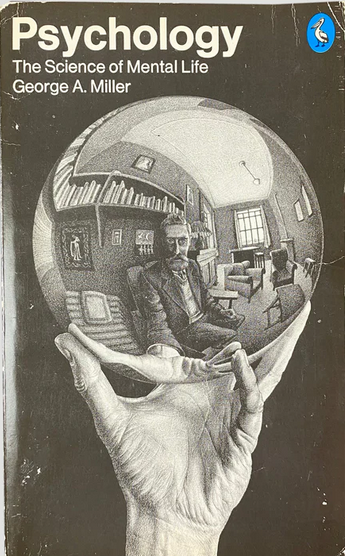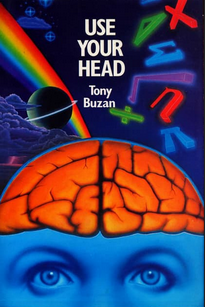All my posts: https://learn1.open.ac.uk/mod/oublog/view.php?u=zw219551
or search for 'martin cadwell -caldwell' Take note of the position of the minus sign to eliminate caldwell returns or search for 'martin cadwell blog' in your browser.
I am not on YouTube or social media

[ 6 minute read ]
Now you see us, now you don't
I met a wonderful woman in ALDI yesterday, whom I could meet every day and never be bored. She is excited and pleased to be alive in a very strange world.
In the frozen produce aisle, Marion had apologised for leaving her basket on the floor next to the frozen fish cabinet, which she thought was in my way because I was leaning sideways over it while I rummaged for Basa (a South-East Asia type of catfish).
'Oh! No!' I said, 'I was avoiding standing next to that couple moving away there.' I pointed at two people at the end of the aisle near the baking products. 'They were standing the other side of your basket and I didn't want to be too close to them.' I thought I had better explain that. 'The man pulled all the boxes of washing-up liquid off the shelves looking for something and then just shoved them all back all higgledy-piggledy. I thought they might do the same to the fish, so I didn't want to get too near.'
Marion nodded approvingly. 'What? I hate it when people do that! 'Why?', and then fell into telling me how invisible she felt she is sometimes.
'People just bump into me and then look straight through me as though I am not there. She gestured with her hands, moving them away from her face, indicating tunnel-vision.
'I'm sorry! Are you talking to me?' I said. 'I was just talking to myself and then suddenly here you are!'
She smiled, but wasn't quite sure if I was serious. She looked confused, bless her. I immediately liked her, and feeling sorry for putting her off balance, I said. 'They probably don't drive.'
She nodded profusely. 'Probably! They are so selfish and just carry on as though you are not there.'
'Well,' I went on, 'If they do drive, it will be a black SUV.' I smiled but knew I had messed up. I don't know her at all. Maybe she drives a black car. At the same time I thought black SUV drivers need to know how despised they are by other road users.
She picked up on my mistake. 'Mine is parked in the car-park,' she frowned at me.
I had it coming. 'Of course.... you would,' I said and went on, 'As soon as I said it to you I just knew the ironic probability was just too high.'
'Not really.' She said, and smiling, wandered coolly off.
Touché, I thought, touché!
Feeling chastened by recognising my mistake, I picked on a young couple to cheer them and myself up. They had to go a little bit around me, while I watched Marion walk away.
'I'm sorry,' I said, 'Was I in your way?'
'No, no. You're fine.' The young woman said.
'I'm practising getting in people's way to get my own back.'
They laughed. Part of me hoped they drive a black car; I was laughing too.
One of my favourite times in supermarkets is when I keep meeting the same person in each aisle. It is so awkward. Both of us have agreed that our conversation earlier has fizzled out and now we have to ignore each other or nod, or wave, or blow raspberries at each other or something. We both feel foolish and embarrassed. I sometimes wish I had never spoken to them earlier. Maybe we might hunch our shoulders at each other to say, 'Who would have thought it?' or 'What a surprise!' I usually just play it safe and leave it at 'Hello'. Most of the time I can see they think the second meeting is awkward, the third uncomfortable, and the fourth excruciating. That's when I turn around and go back to the first aisle, chuckling to myself.
After I had stopped weaving through the busy supermarket I went to pay. There was only one till with a person open. I joined the queue. Marion had her back to me, right in front of me, so I carried on our conversation to her back as though we had not parted.
'Crikey! For a moment there you just disappeared and I was talking to myself.'
She smiled, 'Oh Hello again.' She seemed okay with more conversation. She seemed very relaxed, even pleased to see me, and that is when she told me about the leopard people.
'Have you seen the people who come in here every few days and look like leopards?'
'No, I only come about once a week. They look like leopards?'
'Yes. They have spots of different colours, and just walk in and load up their baskets, and then walk out without paying; every few days!'
'Leopards? Black and white?' I was thinking of vitiligo, which is a lack of pigment in the skin, most obvious as patches of white but healthy skin on black people, and is an auto-immune disorder which can be worsened by stress or environmental conditions.
'Like lepers, not leopards. They have lumps and bumps all over their faces and hands. Nobody stops them.'
'Yes. Patches of decaying white skin falling off.' By now though, I was checking to see if she meant pustular psoriasis. I only know it as psoriasis, which I have seen. It is not contagious. The 'pustular' bit I had to learn about this morning.
I have only seen leprosy in an old film on the telly, 'Papillon', in which a convict escaped from Devils Island and shares a cigar with a leper in the jungle. 'How did you know I have dry leprosy? the leper asked in the film. 'I didn't,' is the reply.
I, like many other people, heard about leprosy in history classes at secondary school in the UK. Bits of their bodies deteriorate and fall off, I heard. Of course, I also heard that medieval monasteries and convents took in and cared for lepers in Europe and the UK, so I understood it was not confined to jungles and damp, warm places, and it is contagious. I didn't learn in school that it can be dry leprosy and not contagious. My school did not tell us about syphilis.
In my head these people had vitiligo or psoriasis, not leprosy, and maybe wore leopard skins but the lumps and bumps, when she said it, chased away the notion of them actually looking like cats and wearing cat-skins.
'Would you stop them?' I asked amused. This conversation has potential, I thought?
'No.' she accepted. 'The security don't search them.'
'Would you search them?'
'No.'
'I don't think they should be stopped.' I said. No-one treats them as their equals so we shouldn't expect them to act as our equals. In fact, they are turning our disability into their ability. Maybe the police won't search them either.'
 In my head, these 'leopard people' are immigrants that have come from a country where they were ostracised and pilloried, and they have no idea that they might be treated differently in the UK by the health service, even if not by the public. I haven't seen them, but it sounds as though their affliction is quite severe.
In my head, these 'leopard people' are immigrants that have come from a country where they were ostracised and pilloried, and they have no idea that they might be treated differently in the UK by the health service, even if not by the public. I haven't seen them, but it sounds as though their affliction is quite severe.
Even though they are plainly more visible than other people once we have noticed their skin, they walk in a strange liminal place, somewhere between physically visible and unsightly to us, as in us not wanting to see them. They are so sensually visible, that we try to eradicate their visage from our perception.
I am reminded of a conversation I had with a Customs Officer at Immingham docks near Grimsby. I asked him how he can tell if someone should be stopped for questioning and searching. He told me they have a formula and what the formula is, but added that they do use experience and just pick the right persons mostly. (Customs staff knew me quite well because I would play pranks on them, and they did the same to me and their colleagues. Frequently going through customs with a van can be great fun if you let it happen).
'One time,' he said. 'I tried to stop an African man, but he wouldn't stop walking and kept telling me that I couldn't see him. Later, we found he was smuggling heroin, and discovered that he thought that a witch-doctor's spell made him invisible and he would be able to just walk through customs without being stopped. Unfortunately for him, because he wasn't holding up an EU passport we, of course, stopped him.'
The thieves that Marion told me about are in the same strange category of visibility, but diverse within it. What a wonderful world!
'We are the leopard people. You can see us, but you don't want to.' To them we all drive black SUVs. Even though they are there we ignore them and pretend they are not.
 Vitiligo (Wikipedia)
Vitiligo (Wikipedia)
An example of sensually inappropriate is: I used to enjoy Rollmop Herrings; loved them. One day, my mum told me that they are raw just as I was chewing on one. I can't look at them now. Rollmops, to me, are sensually inedible.
The woman on the till told me she was pleased to have a conversation with me. She said it lifted her and set her up for her shift. From the looks of disdain from the customer behind me; he couldn't afford a black SUV but would definitely buy a smaller black car, even if it never left his front garden.
Now you see us, now you don't.
 A Dog Day is really supposed to be the hot and sultry days of Summer, when the heat is oppressive and there is bad luck and mad dogs. I just read that!
A Dog Day is really supposed to be the hot and sultry days of Summer, when the heat is oppressive and there is bad luck and mad dogs. I just read that!  Is it the fixation on a subject while we are still waking that writes the Table of Contents for our day? Tomorrow, after I have washed and made a cup of tea and before I do anything else, perhaps I shall write a few words on flowers to see if I do more in my garden later in the evening - I have outside lights.
Is it the fixation on a subject while we are still waking that writes the Table of Contents for our day? Tomorrow, after I have washed and made a cup of tea and before I do anything else, perhaps I shall write a few words on flowers to see if I do more in my garden later in the evening - I have outside lights. I listen to James O'Brien on LBC, a UK national phone-in radio show. He likes to ask particular callers what EU laws they don't like that the UK was subject to prior to Brexit. I never hear any of the callers being able to offer a good reply to this.
I listen to James O'Brien on LBC, a UK national phone-in radio show. He likes to ask particular callers what EU laws they don't like that the UK was subject to prior to Brexit. I never hear any of the callers being able to offer a good reply to this. In supply chain management we learn about the KanBan system, which though you may come across a number of ways to describe it (Chinese Whispers) it is ostensibly this: When a bag of sugar passes through a Tesco checkout someone in a warehouse, hopefully not too far away, puts a bag of sugar on a pallet; or more closely; in ALDI, when a pallet of sugar goes through a checkout, one by one, the number of bags of sugar is automatically counted, and when a specific number is reached someone replaces the pallet of sugar on the shop floor.
In supply chain management we learn about the KanBan system, which though you may come across a number of ways to describe it (Chinese Whispers) it is ostensibly this: When a bag of sugar passes through a Tesco checkout someone in a warehouse, hopefully not too far away, puts a bag of sugar on a pallet; or more closely; in ALDI, when a pallet of sugar goes through a checkout, one by one, the number of bags of sugar is automatically counted, and when a specific number is reached someone replaces the pallet of sugar on the shop floor. In case you are wondering: Passport and driving licence photos used to allow the wearing of glasses; they no longer do because the lenses distort the sides of the face and mess up face-recognition analysis. Not a real problem because it is only the Government that has those photos, right?
In case you are wondering: Passport and driving licence photos used to allow the wearing of glasses; they no longer do because the lenses distort the sides of the face and mess up face-recognition analysis. Not a real problem because it is only the Government that has those photos, right? Maybe Richard Adams was more on the mark and gave us a clue with 'Fiver', the prescient rabbit, in his 1972 novel 'Watership Down'. Ooh er! Its coming. Look to the future!
Maybe Richard Adams was more on the mark and gave us a clue with 'Fiver', the prescient rabbit, in his 1972 novel 'Watership Down'. Ooh er! Its coming. Look to the future! 'Curiouser and curiouser,' said Alice.
'Curiouser and curiouser,' said Alice. If you would like music to match this post you might try Talking Heads, 'Once in a Lifetime' available on YouTube. Go for the Official Audio not the video; it plays without interruption. Link below (opens in new window):
If you would like music to match this post you might try Talking Heads, 'Once in a Lifetime' available on YouTube. Go for the Official Audio not the video; it plays without interruption. Link below (opens in new window):
